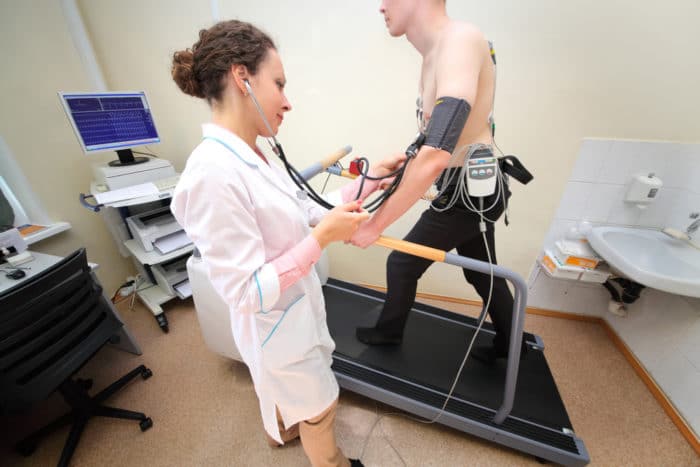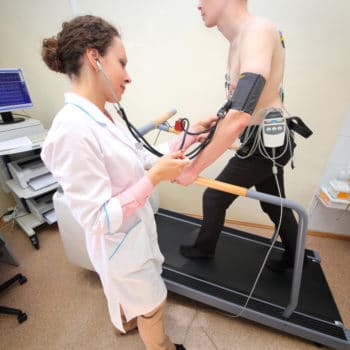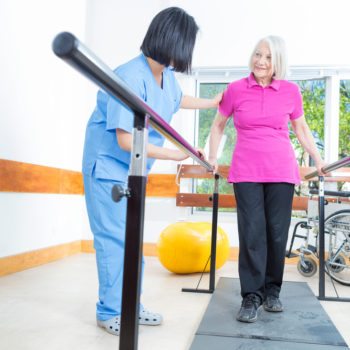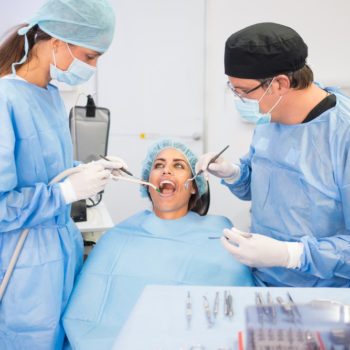Why We Love It
-
$49,740Potential Avg. Salary
-
10.3%Job Growth Rate
-
Growing DemandJob Outlook
-
Don't Take Work HomeCareer Attribute
Exercise physiologists deal with mental processes and overall well-being of individuals, sports teams and organizations heavily involved in exercise and intense physical activity. You would be working closely with people from various walks of life – the general public, professional athletes and sports teams, from amateurs to skilled professionals.
Recommended Schools
What is an Exercise Physiologist?
Duties
The various duties of an exercise physiologist include the following:
- Create well-planned and efficient exercise training programs in workplaces, prisons or psychiatric institutions.
- Coordinate with other sports and exercise professionals to demonstrate how exercise can result in better well-bring and bring therapeutic effects.
- Provide guidance and counsel to clients such as athletes and coaches on sensitive topics such as hydration strategies, acclimatization or heart rate monitoring.
- Utilize special tools and resources such as osmometers, electronic timing systems and aqua pacers.
- Evaluate the physical strengths and limitations of the client to assign exercise goals and assess which type of intervention will be more effective.
Day In The Life
Sport and exercise physiologists spend the day doing a range of things in a laboratory or the field. By contrast, clinical exercise physiologists work in a hospital, private healthcare institute or at medical centres. Conducting fitness testing to assess the physical state of clients is a frequent task, such as muscle strength, oxygen uptakes, body composition analysis, flexibility and endurance assessments as well as EKG treadmill tests.
You may also prepare patients and perform diagnostic and monitoring procedures like resting EKGs and holter monitors. It is the physiologist’s job to prescribe tailored exercise programs and help them to reach their fitness goals seamlessly. Overall, you have to keep abreast of new developments in the field due to possible speaking engagements, written articles for publications and community activities for promoting the effects of exercise on health. If you are relatively senior in your team of staff, you will be expected to also monitor the work quality of other physiologists which includes the recruitment process, evaluation of their performance and compliance with regulations.
Work Schedule
The work schedule of an exercise physiologist largely depends on the client and the type of sports guidance you provide. While it is usually standard office hours, i.e. 9am to 5pm, you may have to work late evenings and on the weekends to accommodate upcoming sports events and extra trainings. Travel is often necessary during the work day, especially if your role involves working with sports professionals, for national, local and international tournaments. With this job area, you can be working from an office in a university campus, a medical hospital or an athlete’s village during high level sports events. Several experienced and accredited physiologists also prefer part-time work and self-employment as job alternatives.
Growth Of The Job
Based on your preference, you can choose to advance in either professional sports or at an academic institution with your skills as an exercise physiologist. There is an increasing demand for reliable as well as qualified exercise physiologists in the field of health promotion and in sports. Apart from clinical support and research, your background qualifies you to teach academic courses in a variety of subjects like environmental physiology, exercise biochemistry, etc.
Typical Employers
There is a wide range of jobs available with private organisations, sports teams or athletes, educational institutions such as universities and colleges both in the country and abroad. Some physiologists work in private consultant positions for professional level athletes and sports teams or with state/national sports authorities. A combination of teaching or research with consulting opportunities with private health care providers is quite common.
Recommended Schools
How To Become an Exercise Physiologist
Being an exercise physiologist is not as straightforward as being a licensed physiologist who excels in sports. Most employers also offer on-the-job training for such positions and follow the mentoring model, where you work with a more experienced colleague is quite common and supplemented by coursework or workshops.
The most direct way is to complete an undergraduate degree in sports science or a related subject such as psychology, physiology or bio mechanics. A post-graduate or doctoral degree with a concentration in exercise physiology or exercise science can help speed up your career to high level positions.
Exercise physiology courses can include sport sociology and motor behavior. Having a background in both psychology and exercise science is not necessary but helpful since this is a multidisciplinary field of study. In addition, previous experience in services such as clinical testing, exercise prescription and evaluation allows interested candidates to transition into a full-time role as exercise physiologist.
Exercise Physiologist Salary Data
We’ve provided you the following to learn more about this career. The salary and growth data on this page comes from recently published Bureau of Labor Statistics data while the recommendations and editorial content are based on our research.
National Anual Salary
Low Range
$37,850Average
$49,740High Range
$73,840National Hourly Wage
Low Range
$18/hrAverage
$24/hrHigh Range
$36/hrHow do Exercise Physiologist salaries stack up to other jobs across the country? Based on the latest jobs data nationwide, Exercise Physiologist's can make an average annual salary of $49,740, or $24 per hour. This makes it an Above Average Salary. On the lower end, they can make $37,850 or $18 per hour, perhaps when just starting out or based on the state you live in.
Salary Rankings And Facts
#391 Nationally for All Careers
Programs and Degrees
Here are the most common degrees for becoming an Exercise Physiologist. a is usually recommended and specifically a degree or coursework that prepares you for the particular field, see below.
Highest Education Among Exercise Physiologists
- 7% Doctorate
- 54.8% Masters
- 24.3% Bachelors
- 6.2% Associates
- 5.1% College
- 2.2% High School
- 0.3% Less than High School
Job Growth Projections and Forecast
2014 Total Jobs
14,5002024 Est. Jobs
16,000Job Growth Rate
10.3%Est. New Jobs
1,500How does Exercise Physiologist job growth stack up to other jobs across the country? By 2024, there will be a change of 1,500 jobs for a total of 16,000 people employed in the career nationwide. This is a 10.3% change in growth over the next ten years, giving the career a growth rate nationwide of Below Average.
Growth Rankings And Facts
#179 Nationally for All Careers
What Companies Employ The Most Exercise Physiologists
| Industry | Current Jobs | New Jobs Needed | % Increase |
|---|---|---|---|
| Self-employed workers | 7,600 | 1,100 | 1% |
| General medical and surgical hospitals; private | 3,100 | -200 | 0% |
| Offices of physical, occupational and speech therapists, and audiologists | 500 | 200 | 0% |















